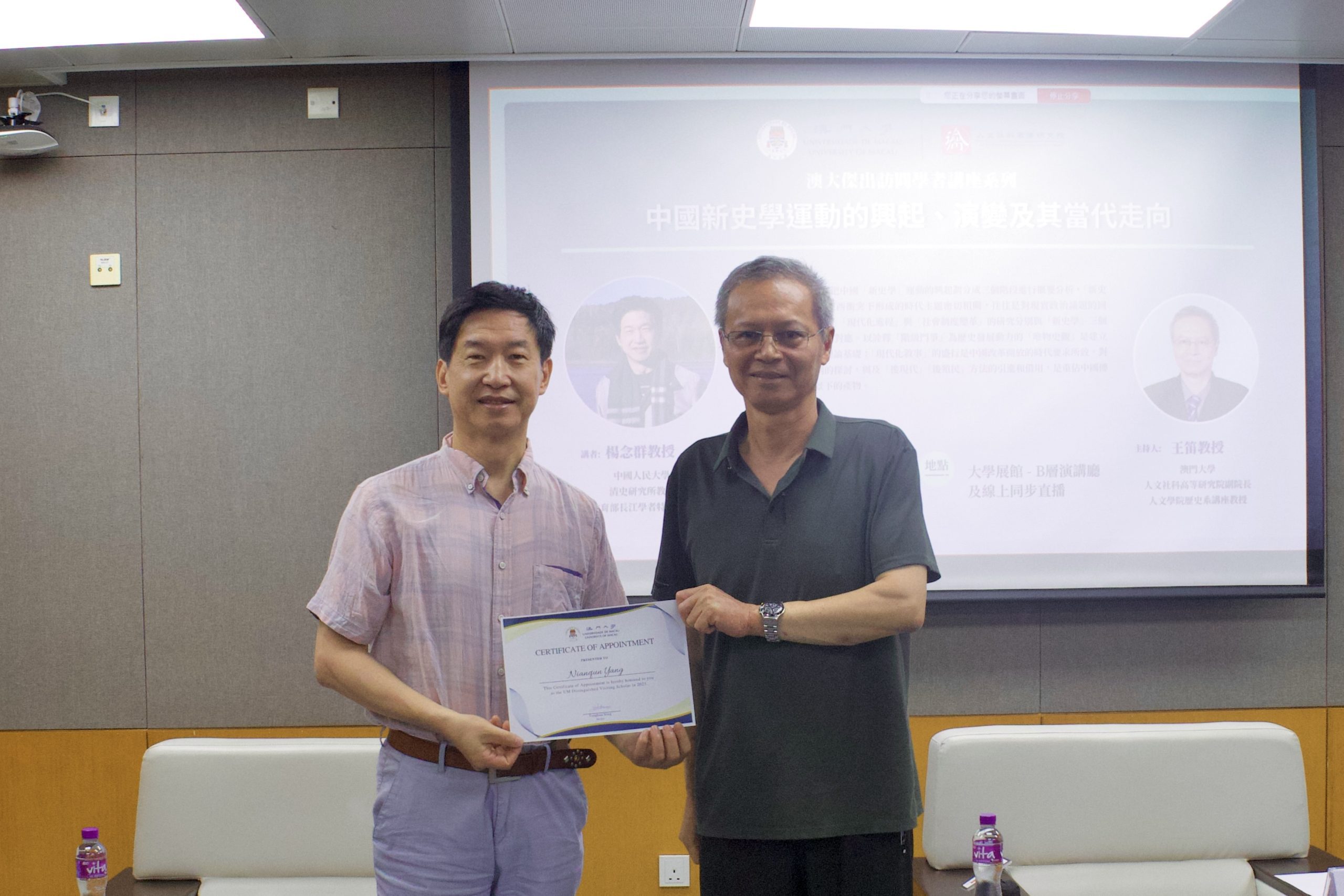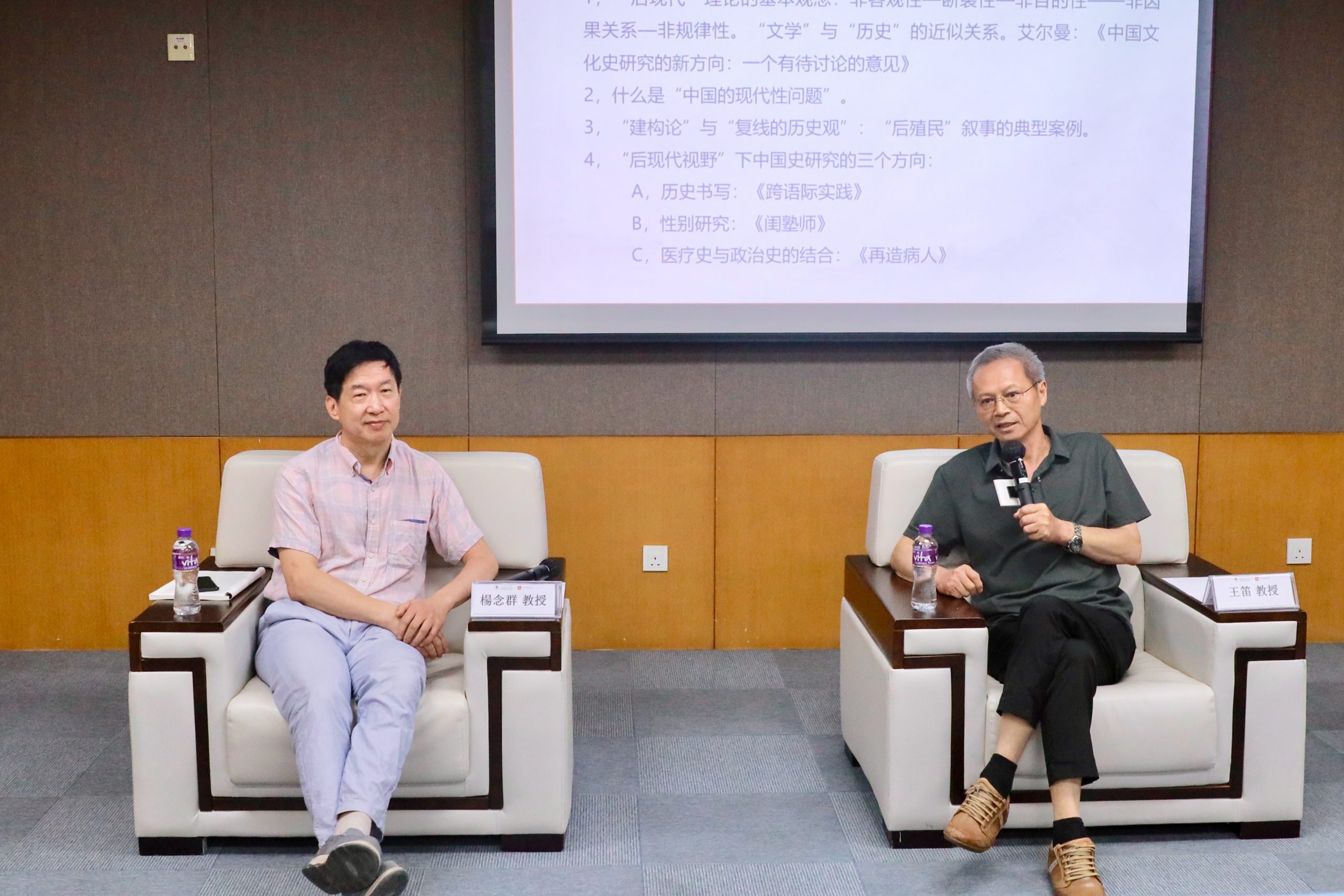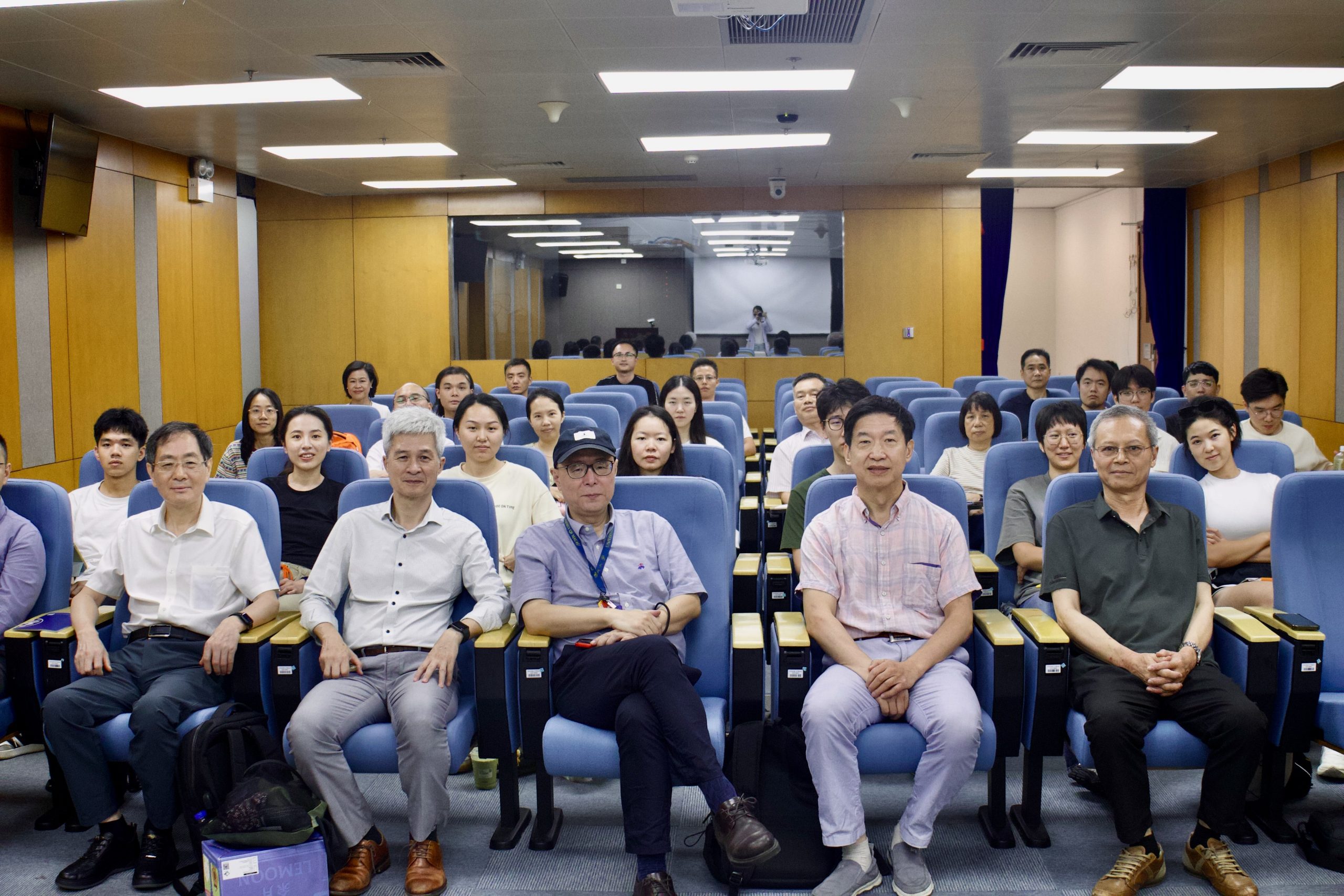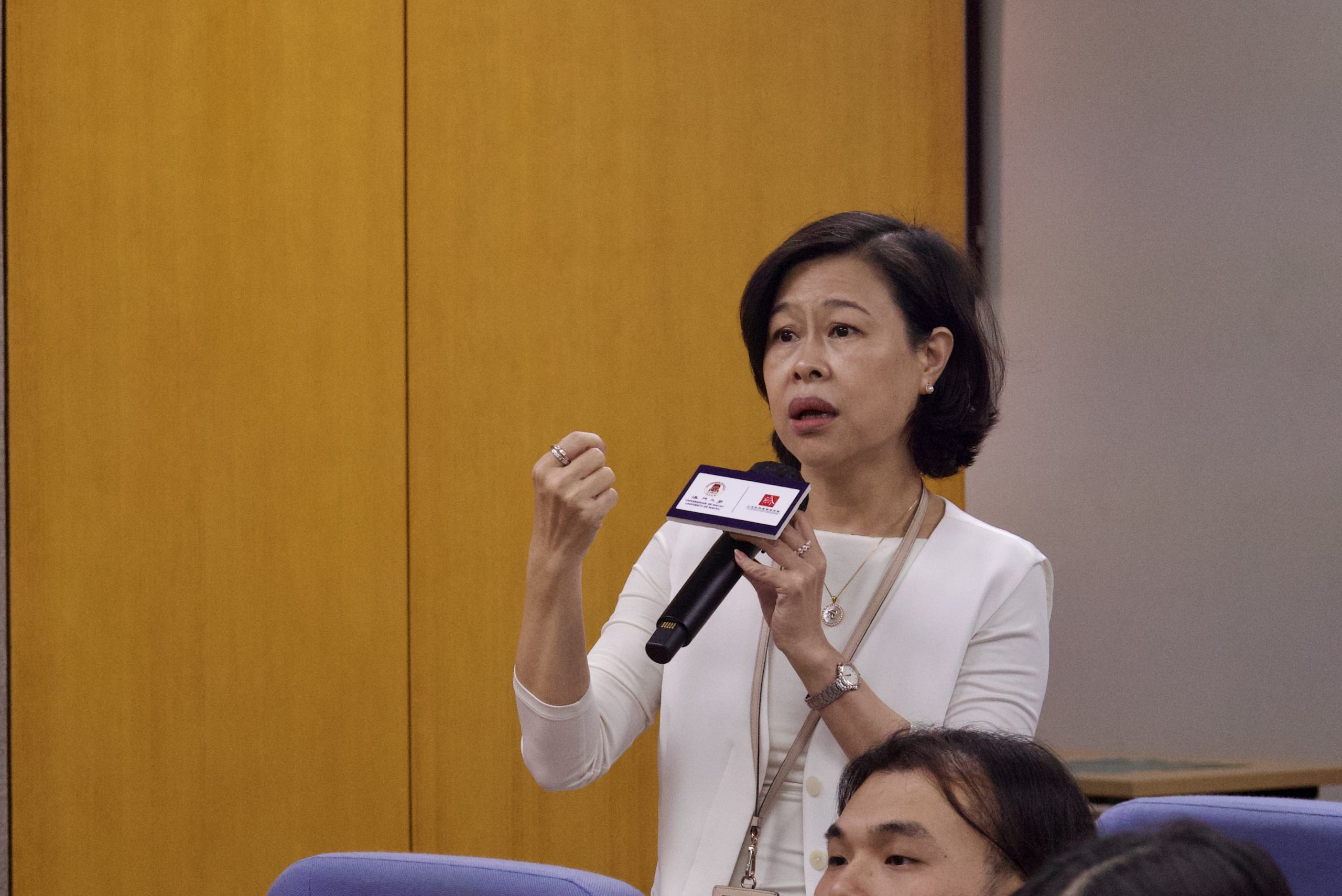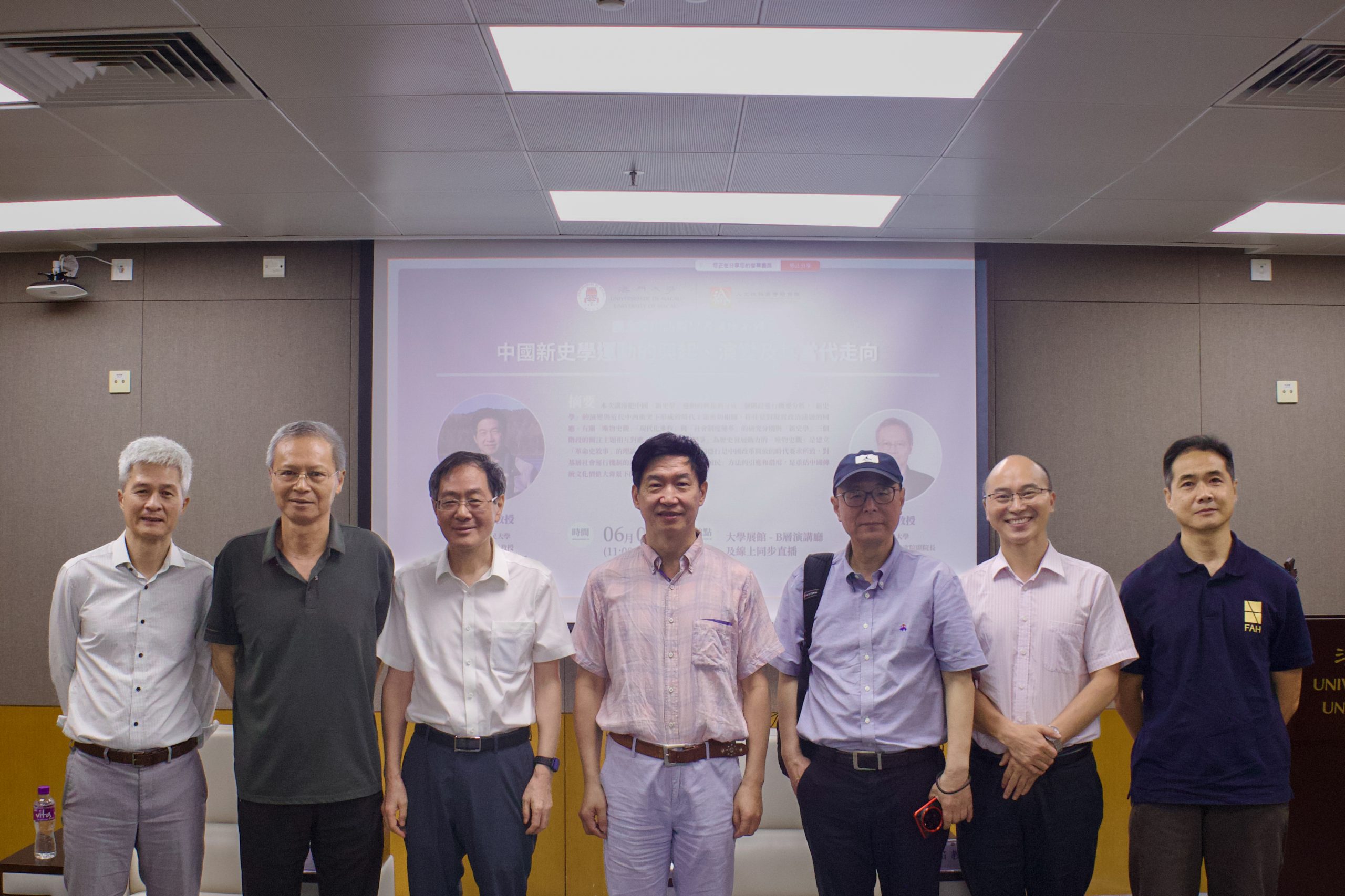【IAS】UM Distinguished Visiting Scholar Lecture Series – “The Emergence, Development, and Contemporary Direction of the New Historiography Movement in China” was successfully held
【高研院】澳大傑出訪問學者講座系列:"中國新史學運動的興起、演變及其當代走向"圓滿舉行

| The IAS promotional video has been launched! We cordially invite you to watch and help spread the word! | ||
|
English |
|
中文 |
 On the occasion of the fifth anniversary of the Institute for Advanced Studies in Humanities and Social Sciences at the University of Macau, we would like to express our gratitude for your unwavering support to us. Your involvement and support have helped build a strong foundation for our interdisciplinary research platform and inspired us to keep moving forward. The IAS is excited to carry on our mission, rooted in Macau, by organizing high-quality academic activities that showcase the diversity of academic collaboration. On the occasion of the fifth anniversary of the Institute for Advanced Studies in Humanities and Social Sciences at the University of Macau, we would like to express our gratitude for your unwavering support to us. Your involvement and support have helped build a strong foundation for our interdisciplinary research platform and inspired us to keep moving forward. The IAS is excited to carry on our mission, rooted in Macau, by organizing high-quality academic activities that showcase the diversity of academic collaboration. |
||
6月5日,澳門大學人文社科高等研究院舉辦澳大傑出訪問學者講座,主題為“中國新史學運動的興起、演變及其當代走向”。主講人為中國人民大學清史研究所教授、教育部長江學者特聘教授楊念群教授,講座由澳門大學高研院副院長、人文學院歷史系講座教授王笛教授主持。本次講座深入剖析“新史學”運動的歷史脈絡與理論演進。
楊念群教授以梁啟超20世紀初開創的“新史學”為起點,闡述其三大特徵:以進化論取代循環史觀,強調線性歷史進展;將史學服務於現代國家建設,批判帝王家譜式書寫,提出“國民史觀”與“民眾史觀”;激發民族主義,為革命與現代化敘事奠基。梁氏史學革新顛覆傳統敘事,啟發後人探索現代性與民族認同。講座梳理“新史學”三階段演進:20世紀初至1940年代,受斯賓塞與馬克思主義影響,關注歷史連續性與斷裂性;1950至1980年代,唯物史觀主導,聚焦社會結構變革;1990年代以降,現代化與後現代、後殖民理論融合,注重非線性書寫與區域社會史。楊念群教授以費正清《美國與中國》為例,解析“西方衝擊—中國回應”框架,並以《再造病人》為例,探討空間視角如何揭示底層社會與醫療史細節,通過空間與時間交織,深化對中國現代性的理解。
討論環節聚焦歷史文學性、理論影響、史學與政治、全球史、現代性與民族主義、年鑑學派及宏大敘事。楊念群教授回應,強調空間視角補充主流敘事,主張史學獨立性與中層理論,注重本土視角。
此次講座系統梳理“新史學”百年演進,並首次於Teams及Bilibili平台直播,線上線下近百人參與,激發對史學方法與中國現代性的思考。
On June 5, the Institute of Advanced Studies in Humanities and Social Sciences (IAS) at the University of Macau hosted a UM distinguished guest lecture titled “The Emergence, Development, and Contemporary Direction of the New Historiography Movement in China.” Delivered by Professor Nianqun Yang, Professor at the Institute of Qing History, Renmin University of China, Changjiang Distinguished Professor, Ministry of Education, the lecture was moderated by Professor Di Wang, Associate Director of IAS; Chair Professor of the Department of History of FAH. The lecture offered a thorough analysis of the “New Historiography” movement’s historical and theoretical development.
Professor Yang began with Qichao Liang’s early 20th-century “New Historiography,” highlighting three features: replacing cyclical historiography with evolutionary theory, positioning historiography to serve modern nation-building by critiquing imperial genealogies, and fostering nationalism through “national” and “people’s” history narratives. Liang’s innovations disrupted traditional narratives and inspired exploration of modernity and national identity. Yang outlined three stages: from the 1900s to 1940s, shaped by Spencerian and Marxist thought, focusing on historical continuity and rupture; from the 1950s to 1980s, dominated by materialist historiography emphasizing social restructuring; and since the 1990s, blending modernization with postmodern and postcolonial approaches, prioritizing non-linear narratives and regional social history. Professor Yang cited John King Fairbank’s The United States and China to illustrate the “Western impact—Chinese response” framework and used his Remaking Patients—Space Politics Under the Conflict Between Chinese and Western Medicine (1832–1985) to show how spatial perspectives reveal grassroots society and medical history details, weaving spatial and temporal dynamics to deepen understanding of Chinese modernity.
The discussion explored the literary quality of history, its theoretical influences, the political role of historiography, global history, the tension between modernity and nationalism, historiographical schools, and grand narratives. Professor Yang emphasised the complementary role of spatial perspectives, historiographical independence, middle-range theories, and native narratives.
The lecture, broadcast live on Bilibili and Teams with nearly 100 participants online and onsite, provided a nuanced exploration of Chinese historiography, inspiring reflection on its methodologies and Chinese modernity.
